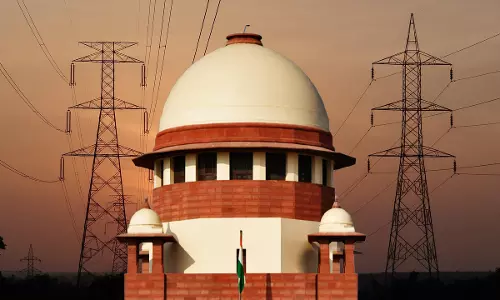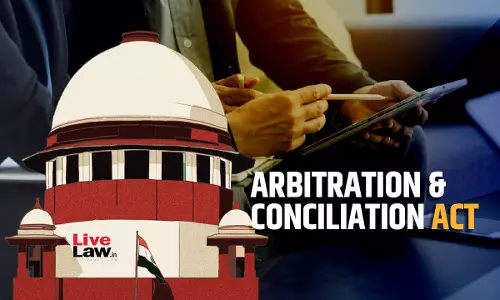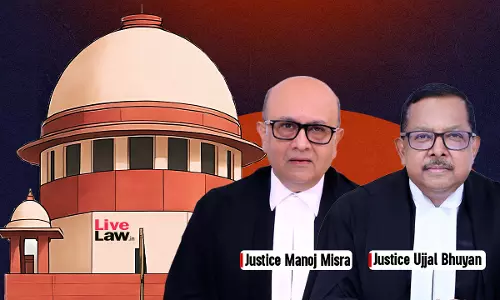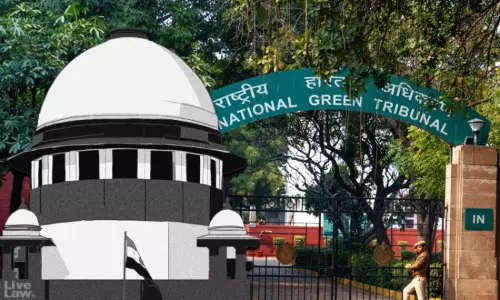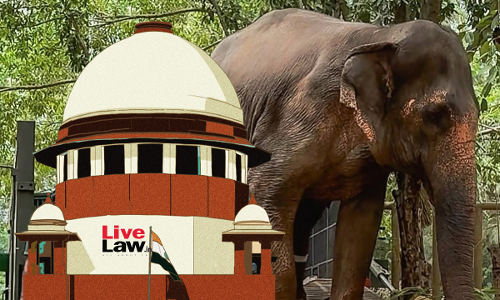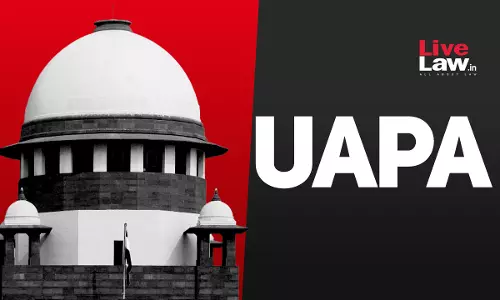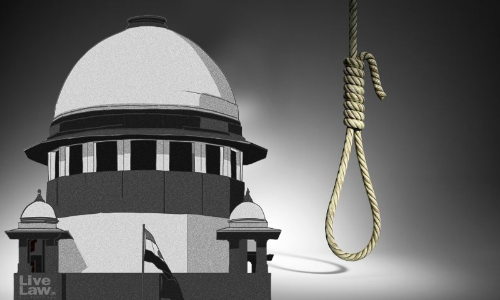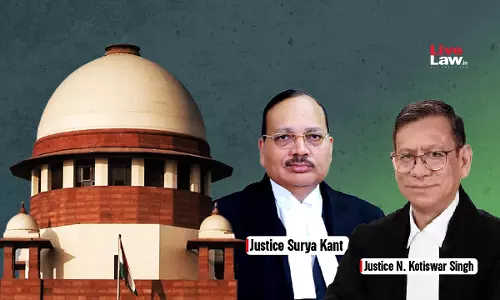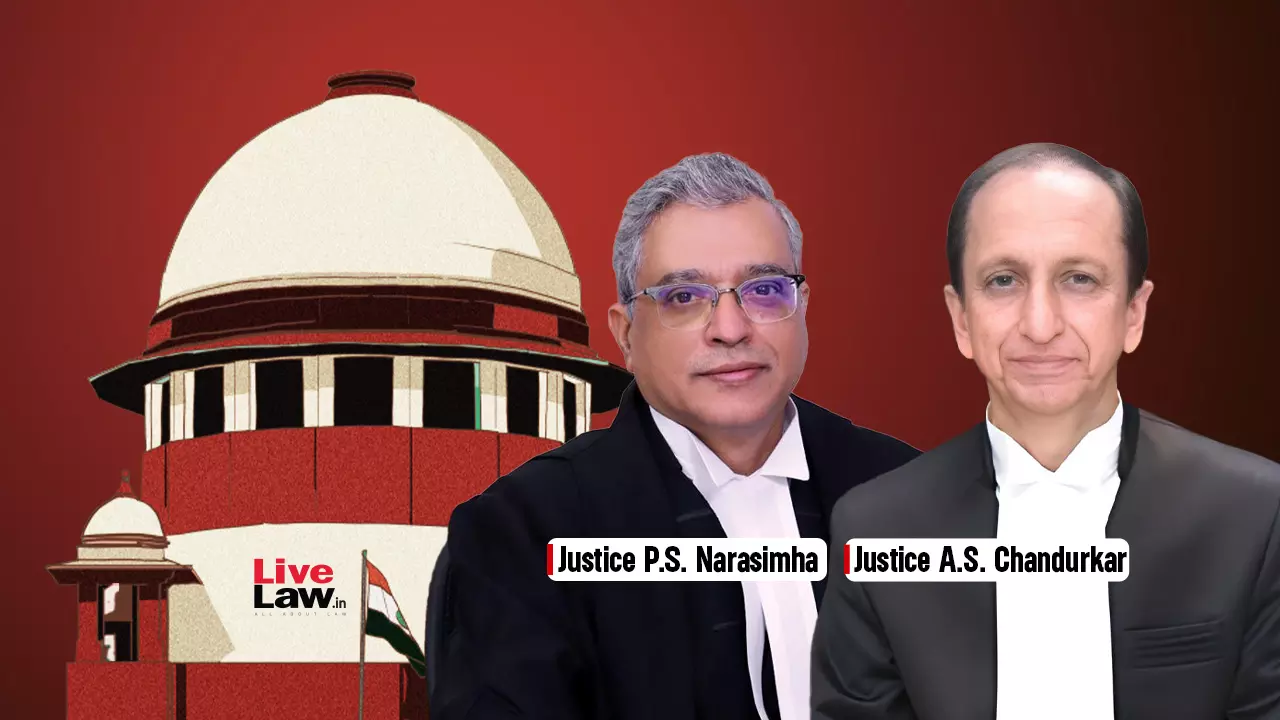Supreme court
Regulators Cannot Rewrite Power Purchase Agreements Under Guise Of Equity; Sanctity Of Contract Must Prevail : Supreme Court
The Supreme Court observed that under the guise of equity fairness, the regulatory or adjudicatory fora cannot override the explicit terms of a commercial contract. It added that the Power Purchasing Agreements (“PPAs”) must be enforced strictly as written, without regulators superimposing obligations not contemplated by the parties. Holding thus, the bench comprising Justices Sanjay Kumar and Satish Chandra Sharma set aside the Appellate Tribunal For Electricity's (“APTEL”) decision which...
Mere Non-Signing Won't Invalidate Arbitration Agreement If Parties Otherwise Consented To Arbitration : Supreme Court
The Supreme Court observed that merely because an arbitration agreement was not signed, there is no bar to refer the dispute to arbitration, if the parties have otherwise consented to arbitration.The bench comprising Justices Sanjay Kumar and Satish Chandra Sharma set aside the Delhi High Court's decision which declined reference to arbitration merely because Respondent No.1 didn't sign...
Refusal To Enter Witness Box By Party Having Special Knowledge Of Facts Invites Adverse Inference : Supreme Court
The Supreme Court on Monday (Aug. 25) observed that when certain facts lie exclusively within a party's personal knowledge, the failure to enter the witness box to testify on those facts can lead to serious consequences for that party. “In civil proceedings, particularly where the facts lie exclusively within the personal knowledge of the party, the refusal to enter the witness box carries grave evidentiary consequences.”, the court said. The bench comprising Justices Sanjay Karol and...
Non-Discovery Of Incriminating Material Does Not Mean Non-Cooperation By Accused: Supreme Court
While granting anticipatory bail to an accused, the Supreme Court recently observed that mere non-discovery of incriminating material is not an indicator of non-cooperation on the part of the accused."Merely because nothing incriminating could be discovered would not mean that there is non-co-operation on the part of accused," said a bench of Justices Manoj Misra and Ujjal Bhuyan.The Court was dealing with a case where the appellant-accused was roped in based on the confessional statement of a...
NGT Has No Power To Direct ED Probe Under PMLA : Supreme Court
The Supreme Court held that the National Green Tribunal has no jurisdiction to direct the Enforcement Directorate to launch investigation under the Prevention of Money Laundering Act against an entity.The bench of Chief Justice of India BR Gavai and Justice K Vinod Chandran set aside the direction of the NGT to the Enforcement Directorate to examine and take appropriate action under the Prevention of Money Laundering Act, 2002. In this regard, it cited Waris Chemicals (P) Ltd (2025) and...
If High Court Bench Doesn't Deliver Judgment In 3 Months, Registrar General Must Place Matter Before Chief Justice : Supreme Court
The Supreme Court today expressed shock at the manner in which judgments are not being delivered for long period by the High Courts, depriving the litigant to seek appropriate remedy. It reiterated that the guidelines passed by the Court in Anil Rai v. State of Bihar (2002), wherein the Court directed that the parties are free to move an application before the Chief Justice of the High Court for withdrawal of case and to be assigned to a different bench if the judgment is not pronounced within...
No UAPA Offence Over Attending Meetings Of Organisation Which Isn't Banned : Supreme Court Affirms Bail
The Supreme Court recently rejected the appeal filed by the National Investigation Agency challenging the bail granted by the Karnataka High Court to one Saleem Khan under the Unlawful Activities Prevention Act over alleged links with 'Al-Hind' organisation.The Court, noting that 'Al-Hind' was not an organisation banned as per the UAPA, observed that no prima facie offence under the UAPA...
Death Sentence Can Be Challenged In Article 32 Petition For Breach Of Procedural Safeguards: Supreme Court
The Supreme Court today allowed an Article 32 petition filed by Vasanta Sampat Dupare, a man convicted and sentenced for the rape and murder of a 4-year old girl, challenging his sentence of death penalty."The writ petition is allowed. Therefore, we hold that Article 32 of the Constitution empowers this Court in cases related to capital punishment to reopen the sentencing stage where the...
Maharashtra Slum Areas Act | Land Can't Be Acquired Without Extinguishing Owner's Preferential Right To Propose Rehabilitation Scheme : Supreme Court
While dealing with acquisition of a parcel of land in Mumbai's Kurla for slum rehabilitation purposes, the Supreme Court recently held that Chapter I-A of the Slums Act gives preferential right to a landowner, vis-a-vis the State, Slum Rehabilitation Authority (SRA), occupiers, and other stakeholders, to redevelop land.The SRA shall mandatorily issue notice to the landowner inviting its...
Order XLI Rule 27 CPC | Appellate Courts Must First Examine Pleadings Before Allowing Additional Evidence : Supreme Court
The Supreme Court ruled that additional evidence cannot be introduced at the appellate stage under Order XLI Rule 27 CPC if it is inconsistent with the pleadings. The Court emphasized that appellate courts must first examine the pleadings before allowing such evidence, as evidence unrelated to the pleadings serves no purpose, rendering them inadmissible. “In our opinion, before undertaking...
Supreme Court Half Yearly Digest 2025 - Constitution of India
Article 21 – Kerala Anti-Social Activities (Prevention) Act, 2007 (KAAPA) – Preventive Detention – Distinction between 'Public Order' and 'Law and Order' – Bail Cancellation – Habeas Corpus – Held, preventive detention, an exceptional measure, must be exercised with utmost caution and strict adherence to constitutional safeguards under Article 21. It cannot be used as a substitute...



